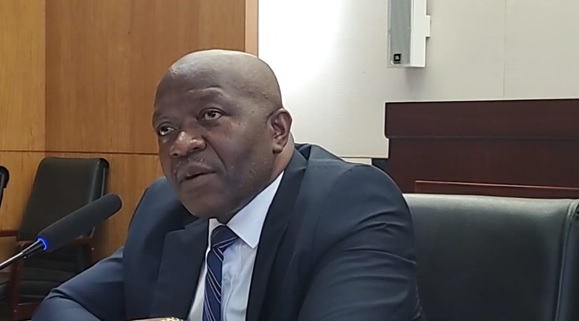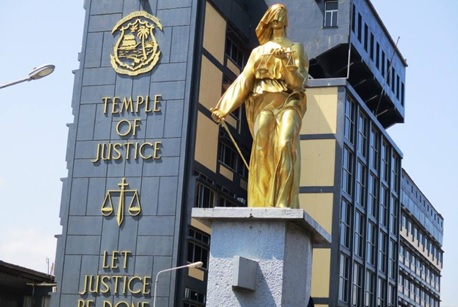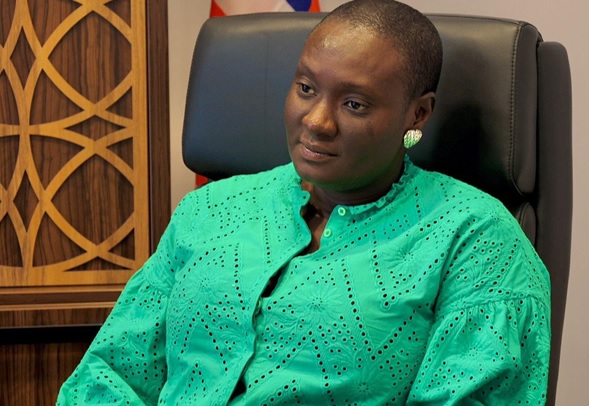MONROVIA – Liberia’s economic progress faces a significant setback following the suspension of key USAID-funded initiatives, with Finance Minister Augustine Ngafuan highlighting the far-reaching consequences of the $17 million funding freeze. Speaking to VOA’s James Butty on Wednesday, February 19, 2025, Ngafuan detailed the suspension of seven major projects, with the Local Empowerment for Accountability and Decentralization (LEAD) project being the most severely impacted. This program had been central to the country’s tax reform strategy and the improvement of its domestic revenue generation.
The LEAD project was pivotal in Liberia’s efforts to transition from a goods and services tax (GST) to a value-added tax (VAT), a shift that was expected to enhance the government’s capacity to generate funds. Through LEAD, Liberia had also made significant progress in developing a digital tax system, including the Electronic Tax Administration System (ETAS), which had streamlined the tax process and improved compliance. The freeze threatens to halt these critical reforms, potentially undermining the country’s future tax revenue capabilities.
For years, USAID has been Liberia’s second-largest donor after the World Bank, contributing substantial financial support to various sectors, including healthcare, education, agriculture, and governance. Over the course of 2022 to 2029, USAID had committed over $443 million to Liberia, funding key projects that provided essential services like hospital care, school feeding programs, and election transparency initiatives. The sudden halt to these programs is expected to have a severe impact on vulnerable populations across the country.
Minister Ngafuan emphasized that the funding freeze will have a cascading effect, not just on USAID projects but also on a wide array of initiatives implemented by local and international non-governmental organizations (NGOs) that depend on these funds. NGOs, which have been instrumental in delivering critical services, are already scaling back operations, jeopardizing millions of Liberians’ access to healthcare, education, and other essential services.
One of the hardest-hit sectors is education, where USAID’s support had been directed at improving access to schooling for rural children and enhancing the quality of education. With the freeze, many of these educational reforms may be delayed or canceled, leaving Liberia’s long-term educational objectives uncertain. Similarly, the healthcare sector, which relied on USAID for medical supplies and infrastructure support, now faces an unpredictable future.
The freeze also casts a shadow over Liberia’s electoral processes. The LEAD project had played a crucial role in strengthening the country’s election system, providing resources for voter education, election monitoring, and promoting transparency. As Liberia heads into future elections, the suspension of funding raises concerns about the integrity of the electoral process and the government’s ability to ensure free and fair elections.
Despite the challenges posed by this aid freeze, Minister Ngafuan remains optimistic about Liberia’s resilience. He pointed out that the government has taken immediate action to assess the full impact of the aid suspension. The Ministry of Finance has completed an assessment of both short-term and long-term consequences, which has been submitted for review by President Joseph Boakai and the legislature.
To counterbalance the effects of the aid freeze, the government is focusing on increasing domestic resource mobilization. While USAID had been a major contributor to Liberia’s tax reforms, the government is now prioritizing the expansion of the Liberia Revenue Authority’s capacity to improve tax collection and reduce evasion. Ngafuan reiterated that, despite the setback, the government is committed to developing sustainable revenue sources and achieving greater fiscal independence.
The government is also focused on tightening fiscal discipline across public institutions. Measures are being implemented to reduce waste and improve the efficiency of public spending. Ngafuan stressed that ensuring fiscal control is vital for Liberia to navigate these turbulent financial times without further economic decline.
Additionally, Liberia is seeking new partnerships to mitigate the impact of the USAID freeze. Minister Ngafuan confirmed that talks are underway with regional organizations like ECOWAS and the African Union to explore new opportunities for economic cooperation. Strengthening ties within the region could help offset some of the financial gaps left by the aid suspension.
Although the road ahead remains challenging, Ngafuan is confident that Liberia can persevere. With a renewed focus on self-reliance, strategic fiscal management, and regional collaboration, Liberia is determined to continue its development journey, even without the crucial support from USAID. The Finance Minister’s message is clear: while the current circumstances are difficult, Liberia’s resilience and strategic approach will ensure that the nation stays on track for progress.







